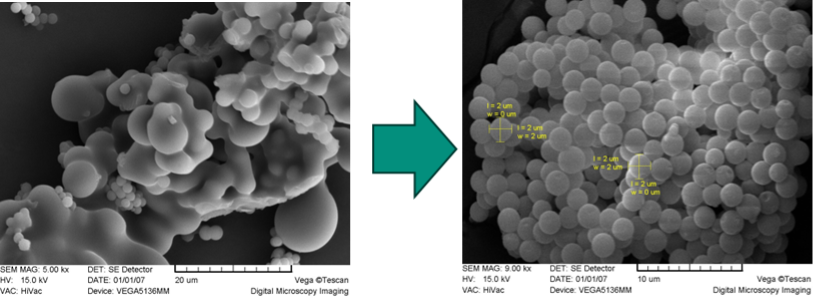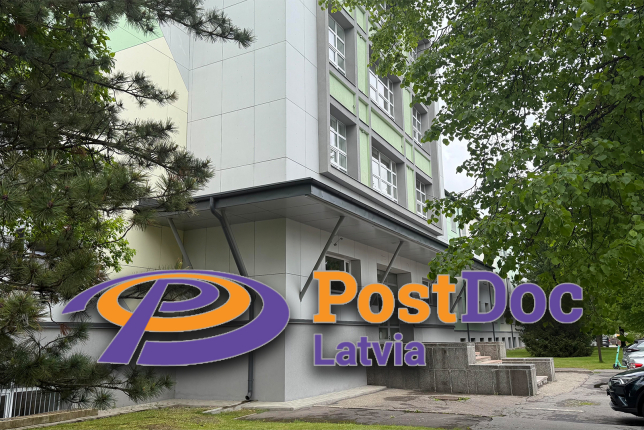HTCelect
Project summary
The main objective of the project proposal is to simultaneously obtain value-added solid and liquid products by hydrothermal processing of biomass carbohydrates, thus promoting the development of new biorefinery pathways. The solid products will be used as a new type of carbon electrode material, while the liquid by-products will be investigated as a resource for the chemical industry. The use of lignocellulosic sugars is a new approach to obtain innovative carbon materials which after heat treatment will provide new efficient materials for energy related devices. By implementing the biorefinery approach, which maximises the value of the obtained materials and reduces wastes, the project is in line with the Latvian Smart Specialization Strategy (RIS3) in the field of "Knowledge-intensive Bioeconomy" in creating carbon materials that could compete with commercial ones as electrodes and catalysts.

Within the framework of the project, new renewable carbon materials will be obtained at the Latvian State Institute of Wood Chemistry, which will be further heat treated and used in mobility as fuel cell electrocatalysts and battery electrode materials. This work not only provides a study of the properties of solid and liquid products after hydrothermal treatment of biomass, but also a theoretical platform for obtaining new efficient carbon materials for energy.
Call: Specific Objective 1.1.1 “Strengthening of Research and Innovation Capacities and Introduction of Advanced Technologies in the Common R&D System” of the European Union's Cohesion Policy Programme for 2021-2027.
Activity: 1.1.1.9 “Post-doctoral Research”
Total eligible costs of the project: 184 140 EUR, including funding from the European Regional Development Fund in amount of 85 % – 156 519 EUR.
Project implementation period: 36 months
Project Partners:
- Lead Partner – Latvian State Institute of Wood Chemistry
- Cooperation Partner – Center for Physical Sciences and Technology, Vilnius, Lithuania (FTMC)
Place of implementation: Latvian State Institute of Wood Chemistry
Project implementation
30.09.2025.
Project progress report for the period of 01.04.2024.-30.09.2025.
Work package 1 "Hydrothermal synthesis (HTC) basis of monosaccharides: process modeling" was carried out.
- HTC of monosaccharides. Glucose (G) and levoglucosan (LG) were used as reference materials and were HTC under different conditions (variables included temperatures 150, 200, 250 300 °C, reaction time 4, 8, 16 h, and raw material-to-water ratio). Particles were separated using filtration. Solid samples were obtained for subsequent modification.
- Investigation of liquid by-products . Liquid by-products were collected and tested by potentiometric titration of acids, aldehydes, phenols. dry matter content and pH were determined. It was found that increasing the synthesis temperature decreased the pH, dry matter content, and aldehyde concentration, while the amount of acids in the liquid sample increased.
- Biochar testing. After filtration and washing of solid particles collected and their characterization and comparison were carried out using elemental analysis, chemical composition (Py-GC/MS), identification of surface groups, and particle size and morphology via SEM. It was found that both concentration and processing temperature and time affected the morphology and composition of the material. Spherical biochar could be obtained at 250 and 300 °C, while the highest yield (28–45%) was achieved at 250 °C, depending on the raw material concentration.

WP4: Dissemination and outreach
- Interview with Latvian National Radio LR1, where she explained how biochar can be applied in electrical devices, including batteries, fuel cells, and supercapacitors.
- Participation in the international conference Carbon2025 with a poster presentation: “Study of liquid and solid product formation after hydrothermal processing of carbohydrate and aromatic biomass derivatives”.
- Participation in Researchers’ Night 2025, engaging the public with science communication activities.
01.04.2025.
Beginning of the project


